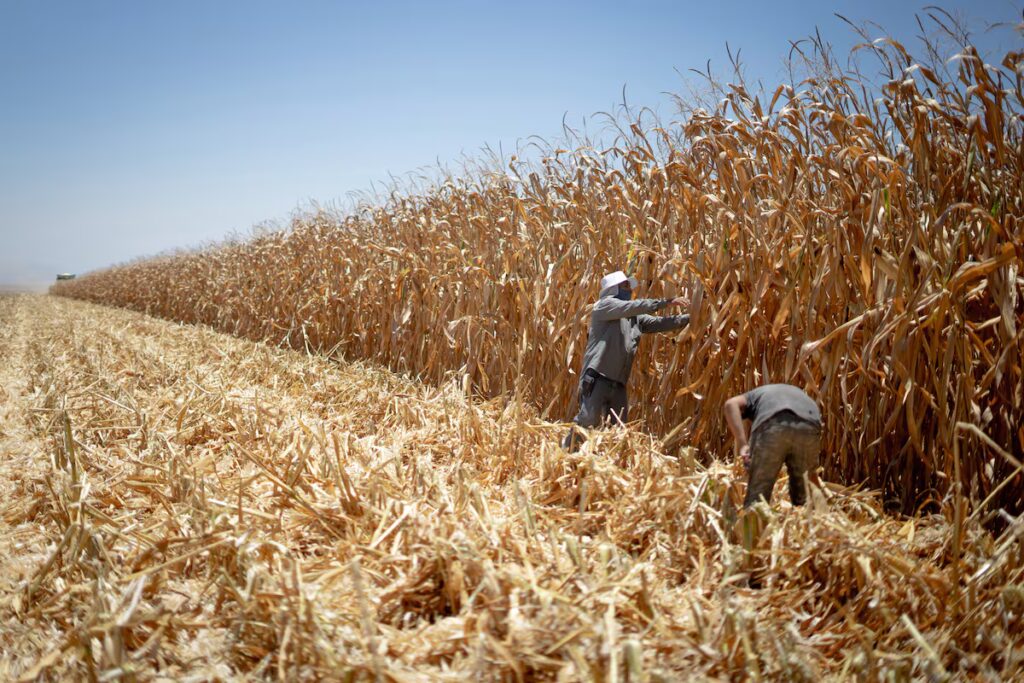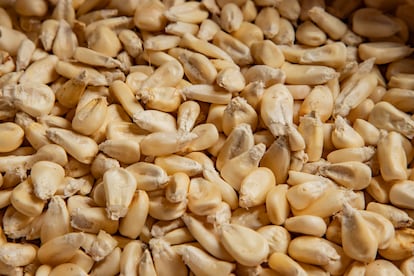
Grupo Minsa, Mexico’s corn tortilla flour giant, has refused to take action on grain prices, amid a wave of blockades and farmer protests over plunging food prices. The company, led by Sheinbaum’s current business-government liaison Altagracia Gómez, told its investors Tuesday that it purchases about 1% of total corn consumption in Mexico, so it does not set or intend to set corn prices. With the hot campaign in the background, the company has gone out to defend its cost and income structure, ensuring it pays a competitive price to its farmers and prioritizing domestic supply over exporting grain. “The prices paid by Minsa are higher than international ones because they incorporate a premium for domestic corn which currently represents approximately one thousand pesos per ton compared to the international reference, which translates into an increase of 24% compared to the price of imported yellow corn used in other sectors,” he explained.
The company said it mainly buys domestic corn and saw a need to import grain only to ensure supply in seasons of regional shortage. “The company’s corn import in recent years represents less than 4 percent of total purchases and less than 0.1 percent of the domestic crop volume. Over the past six years, the company purchased nearly four million tons of domestic white corn and imported only 69,815 tons,” he said. Furthermore, he clarified that the cost of corn flour represents only 35% of the price of tortillas in Mexico, the rest of the costs are made up of other components in which Minsa does not participate.
Amid complaints from Mexican producers asking the government for a guaranteed price on corn, Minsa detailed its sources of revenue: 51% comes from pasta and tortilla producers. In second place, with 34%, are the producers of toast and corn snacks and the rest is distributed between supermarkets, self-service and exports. Additionally, the company participates in competitive bidding with federal and local governments to supply packaged flour. According to the company, sales of cornmeal to government entities decreased from 7.8% in 2020 to 4.2% this year.
The Mexican flour giant acknowledged the situation facing Mexico’s corn producers due to falling international prices and a strengthening exchange rate and said it has direct marketing agreements with farmers in the states of Jalisco, Michoacán, Guanajuato, Sinaloa and Campeche. “Minsa is confident that, with dialogue and good faith from all players in the value chain, a long-term solution will be established to address the problems faced by corn producers in Mexico,” he concluded.
The corporate filing comes amid agricultural upheaval. This week, thousands of farmers held roadblocks and protests to demand better prices for their crops and greater safety guarantees during their travels from Claudia Sheinbaum’s government. Protesters are demanding coverage of 100% of production costs, plus 30% of profit, but the government offers payment for only 50% of production. Last Tuesday, after a chaotic day of failed negotiations, the farmers blew up the negotiating table with the federal authorities and threatened new street protests.

The controversy over low corn prices has hit Minsa. Some protesting organizations claim that the large tortilla flour multinationals, Maseca and Minsa, did not take part in the negotiation tables with the government to guarantee the purchase price of their cobs and denounce that the Minister of Agriculture, Julio Berdegué, and Altagracia Gómez herself, only look after the interests of the industry, but not of those who produce the corn.
Earlier this month, Minsa’s heir, Altagracia Gómez, distanced herself from the controversy over grain prices. The Sheinbaum entrepreneur and main interlocutor from the business world said in a forum that the greatest pressure on the market for this food comes from the livestock sector, the main consumer of corn in Mexico. “It’s not just Minsa and it’s not just Maseca and it’s not just the mills or the milling industry. The big buyer in Mexico is the livestock industry and by giving it to the livestock, as one of the main feeds for fattening animals, they base the price very much on the international price,” he indicated while participating in a forum in Guadalajara.
Grupo Minsa, founded in 1993, is the second largest producer of corn flour, behind only Gruma, which operates the Maseca brand. Minsa currently has six maize flour factories in the country. In the third quarter of this year, the company recorded sales of 122,000 tonnes, representing a 10% increase compared to the same period in 2024, an increase caused by a greater volume of tonnes placed in the so-called special and export markets. In its financial report, the company reported a lower cost of goods sold due, primarily, to the decrease in the cost of corn, the main input in the production of corn flour. Minsa derives approximately 90% of its revenue from the production, marketing and sale of nixtamalized corn flour.




